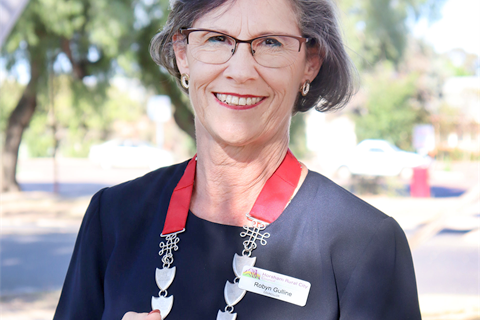Council
23 June, 2023
Pay disparity hampering councils
As municipalities throughout the Wimmera present their budgets for 2023–24, dissatisfaction over how some local government representatives are compensated for their time is simmering. In Horsham, mayor Robyn Gulline currently receives a base...

As municipalities throughout the Wimmera present their budgets for 2023–24, dissatisfaction over how some local government representatives are compensated for their time is simmering.
In Horsham, mayor Robyn Gulline currently receives a base allowance of $100,637 per year, deputy mayor Penny Flynn $50,319 and the remaining five councillors $31,353 each.
This is roughly two-fifths of what a mayor in one of the state's top-tier council areas is paid.
This is despite the considerable workload involved in governing a diverse and geographically large share of regional Victoria, mayor of Strathbogie Shire, Laura Binks, says.
In a submission last year to the Victorian Independent Remuneration Tribunal, which sets councillors' allowances, Cr Binks said: “Given that we are all bound by the Local Government Act and required to perform our duties accordingly, the size of the shire has no bearing on our requirements.”
Cr Binks said she believed the division of councils into four pay categories was “inconsistent with other levels of government and not reflective of the enormous amount of work mayors, deputy mayors and councillors do in the smaller shires”.
She pointed in particular to roads as a major priority in regional and rural Victoria.
“Maintaining extensive road networks should be taken into consideration,” Cr Binks said.
“Rural councils are instrumental in ensuring the Victorian agricultural industry continues to be able to deliver for humanity and the state, for tourists to visit our regions for holidays and escapes in nature, and to take pressure off the urban population as more people choose to live in regional and rural Victoria.”
Cr Binks added that responding to the needs of communities during and after natural disasters such as bushfires, floods and droughts was an extra task for councillors outside the metropolitan boundary.
The Local Government Act spells out that councillors are entitled to receive an “expense allowance” but does not define exactly what this comprises.
However, it is agreed that it is a financial compensation for the responsibilities involved in serving as a member of council.
Minimums are determined by the Victorian Independent Remuneration Tribunal and announced each December.
Last year, the tribunal granted an increase of 1.5 per cent across the board, applicable to allowances for councillors, mayors and deputy mayors.
Local government areas in Victoria are segregated according to criteria including population, placing Horsham Rural City Council in category two, the second-lowest pay bracket, alongside Mildura, Warrnambool, Greater Shepparton, Wangaratta, Wodonga, and Maribyrnong and Yarra in Melbourne.
Buloke, Hindmarsh, Northern Grampians, West Wimmera and Yarriambiack shires are all in category one.
The mayor in a category one municipality receives $77,933 and the deputy $38,967, while all other councillors are paid $25,147 each.
Cr Binks said the relatively low allowances granted to regional and rural councillors was stifling diversity.
“Councils with lower wages have an impact on who is willing to put their hand up for a role on council,” she said.
“The majority in the lower-paid councils are retired members of the community or those from a financially secure background who can afford to reduce their paid work to take on a councillor role.
“While both provide valuable expertise and skills on council, having a council that lacks the diversity of the community it represents does not allow for the best outcomes for that community.
“I would like to see councils remunerated equally across the state to improve diversity and equality.”
The significant pay jump from general councillor to deputy mayor has led another council member to suggest that some people are being motivated to seek higher office despite lacking the skills needed at this level.
The author of a second submission to the tribunal, whose name was redacted to preserve confidentiality, said: “The role of the deputy mayor is only relevant where the mayor is incapacitated.
“Generally at (council X), where the mayor has a clash and can’t make multiple events due to them running at the same time, it is a local ward councillor that is sent.
“Talking to my colleagues across the sector, the big discrepancy between the allowances for councillors and deputy mayors has (suddenly) seen a lot of councillors wanting to become the deputy mayor, not because they’d be good in a leadership role but because they'd get paid double with very little extra commitments attached.”
A fresh round of submissions closed on April 28 and will be taken into consideration when the tribunal makes its determination on allowances this year.
Horsham Rural City Council was invited to comment for this article.